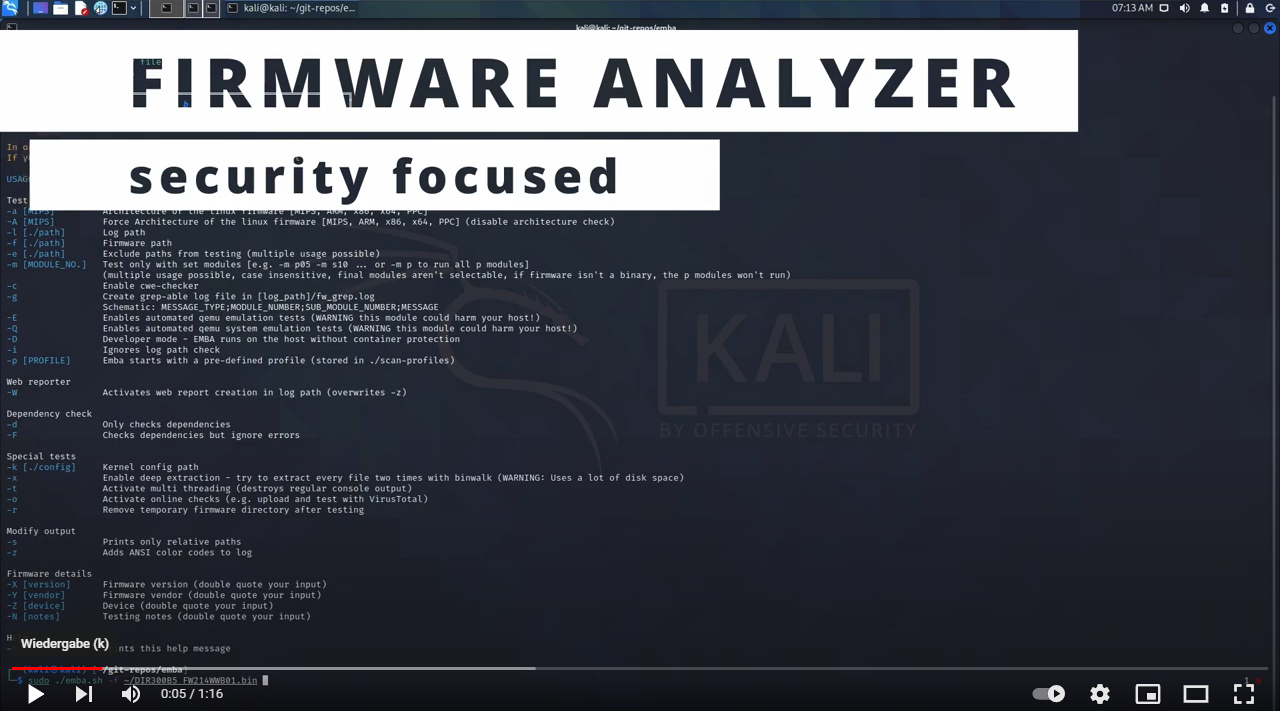EMBA is designed as the central firmware analysis tool for penetration testers. It supports the complete security analysis process starting with the firmware extraction process, doing static analysis and dynamic analysis via emulation and finally generating a report. EMBA automatically discovers possible weak spots and vulnerabilities in firmware. Examples are insecure binaries, old and outdated software components, potentially vulnerable scripts or hard-coded passwords. EMBA is a command line tool with the option to generate an easy to use web report for further analysis.
EMBA combines multiple established analysis tools and can be started with one simple command. Afterwards it tests the firmware for possible security risks and interesting areas for further investigation. No manual installation of all helpers, once the integrated installation script has been executed, you are ready to test your firmware.
EMBA is designed to assist penetration testers and not as a standalone tool without human interaction. EMBA should provide as much information as possible about the firmware, that the tester can decide on focus areas and is responsible for verifying and interpreting the results.
Before running EMBA make sure, that you have installed all dependencies with the installation script and met the prerequisites
git clone https://github.com/e-m-b-a/emba.git
cd emba
sudo ./installer.sh -dsudo ./emba.sh -l ./log -f /firmwaresudo ./emba.sh -l ./log -f /firmware -p ./scan-profiles/default-scan.emba
./emba.sh -l ./log -f ./firmware -DWARNING: Before using the developer mode you need a full installation of EMBA with sudo ./installer.sh -F. This installation mode needs around 15 gigabyte of disk space and is only recommend for development environments.
EMBA supports multiple testing and reporting options. For more details check the wiki.
The IoT is growing, the development is ongoing, and there are many new features that we want to add. We welcome pull requests and issues on GitHub.







